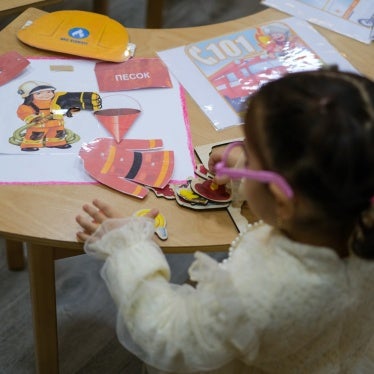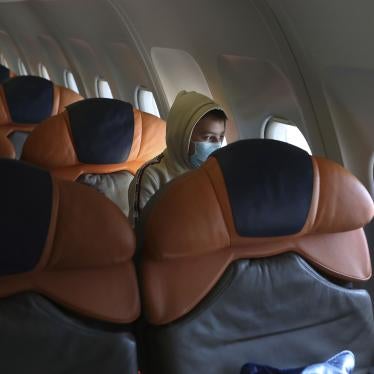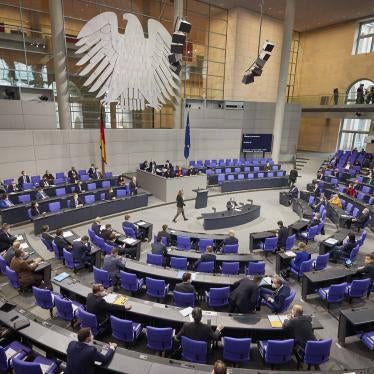More than half a million children are recruited into government forces and armed groups in more than 87 countries, the Coalition to Stop the Use of Child Soldiers said today in a new global survey. At least 300,000 of these children are actively fighting in 41 countries.
The 450-page survey, "Global Report on Child Soldiers 2001," is the most comprehensive study to date on the use of child soldiers. The report provides new details on military recruitment by government armed forces, civil militia, paramilitaries, and non-state armed groups in 180 countries.
The report finds that overall, the situation has improved in Latin America, the Balkans, and the Middle East in recent years, while new generations of children are at risk in Africa and parts of Asia and the Pacific.
"We've had some movement towards a global ban on child soldiers, but we need to move faster," said Jo Becker, chairperson of the Coalition and children's rights advocacy director for Human Rights Watch. "The problem is not confined to developing countries in the midst of conflict."
Industrialized countries facing personnel shortfalls have also increased efforts to attract young recruits. The United Kingdom recruits children as young as sixteen and routinely sends 17-year olds into combat. The United States has deployed under-18 groups in the Gulf War, Somalia and the Balkans.
"The widespread availability of modern lightweight weapons has contributed to the child soldier problem, enabling even the smallest child to become an efficient killer," said Rory Mungoven, Coordinator of the Coalition.
International political and military support for armed forces and armed groups using children, sometimes linked to the exploitation of natural resources like diamonds or oil, has in many cases deepened conflicts and the involvement of children.
"When even a few children are involved as soldiers in a conflict, all children in that particular community come under suspicion," said Mr. Mungoven. The report's Colombia entry cites the case of a party of schoolchildren that were killed after the army mistook them for a guerrilla unit in Antioquia province.
"It is not just children in conflict areas who are at risk: often children are recruited from second countries, among refugee communities or ethnic diasporas, or trafficked across borders," said Mr Mungoven.
Children have been recruited from countries in Europe and North America by Kurdish and Kosovar armed groups. Cross-border recruitment in Africa is also common. Since last June, 80 countries have signed a new treaty barring the use of children in armed conflict, but only five have ratified it. The Optional Protocol to the Convention on the Rights of the Child on the involvement of children in armed conflict was adopted by the UN General Assembly on May 25, 2000. It prohibits the participation of children under the age of 18 in hostilities and all forced recruitment of children. It also calls on states to raise the minimum age for military recruitment.
"In recent years more and more governments have stopped recruiting children under-18 into the military. Even some armed groups have committed themselves to this principle," said Ms. Becker.
"This week in New York, governments are preparing for the upcoming UN Special Session on Children," said Becker. "Meanwhile, children are fighting and dying every day. Governments must respond by immediately ratifying and implementing the Optional Protocol."







